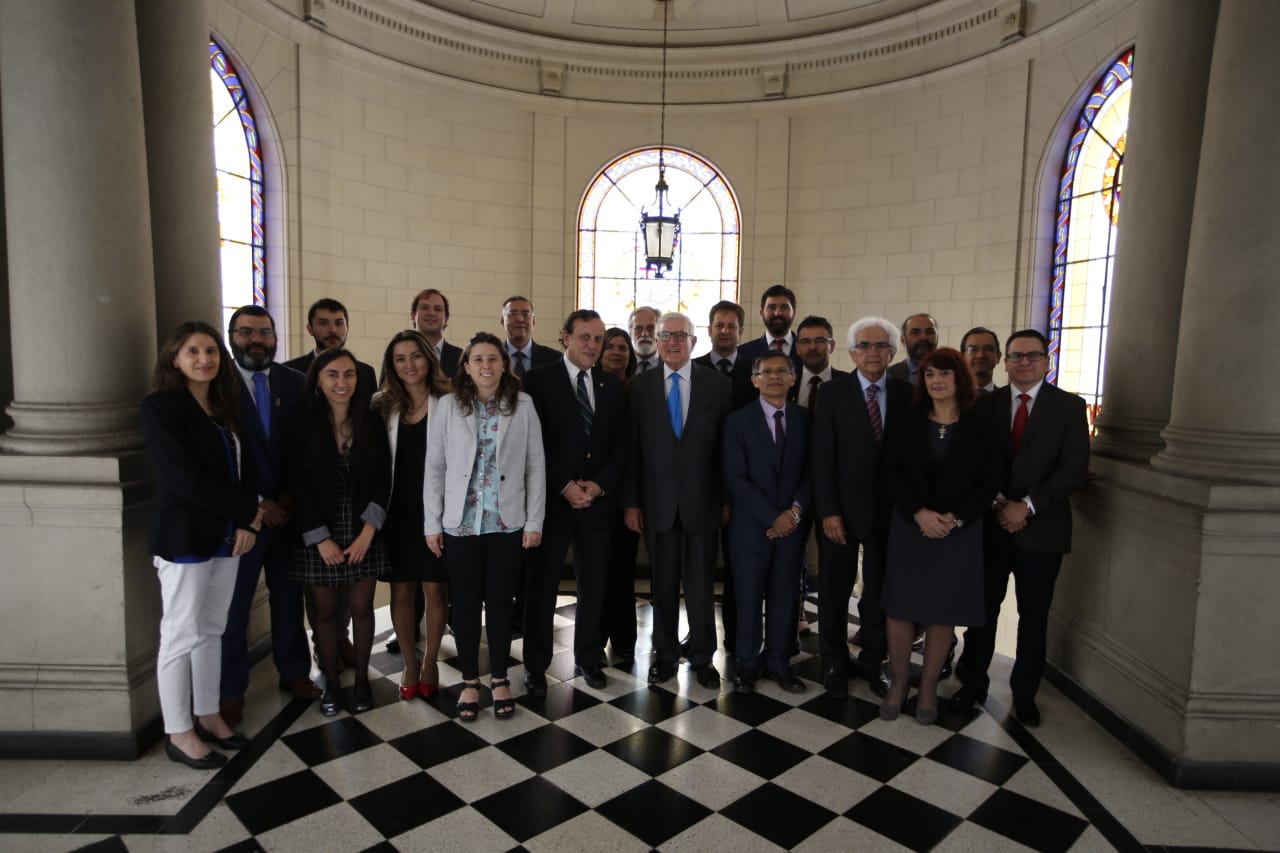Representatives from Mexico, Colombia, Peru and Chile met at Universidad Católica to promote and articulate the necessary agreements to successfully conduct the forum of universities of nations of the Pacific Alliance in 2019.

The Pacific Alliance was born as an economic and development initiative between four Latin American countries: Mexico, Colombia, Peru and Chile. However, to achieve the link and integration between them, it is also necessary to promote social, cultural and scientific spaces that effectively contribute to development and a better quality of life for their population. This is where universities have a lot to contribute.
Thus, a group of study houses from the member states are working to hold the “Academic Forum of Universities of the Pacific Alliance: Scientific Dialogues for a Sustainable Society”, supported by an organizing committee made up of by the Ministry of Foreign Relations, the Council Chilean Universities Presidents, Universidad de Chile and Pontificia Universidad Católica de Chile.
“We are very happy to be the house that hosts this preparatory meeting, since the topics in the portfolio coincide with the interest of our university. We permanently work to advance the challenges that we have set ourselves in the areas of natural resources and climate change; health and aging; education of the future; and democracy, participation and inclusion”, stated Universidad Católica’s President, Ignacio Sánchez, at the opening of the meeting.
UC President welcomed the representatives of the Mexican study houses, Tecnológico de Monterrey and National Autonomous University of Mexico; Universidad del Pacífico and Universidad San Marcos de Perú; his Colombian counterparts, Universidad de los Andes and Universidad Nacional de Colombia; and the teams from Universidad de Chile and Universidad Católica.
“Latin American integration is a long-awaited dream that seems unattainable, but the Pacific Alliance has precisely a hint of realism, in the sense of seeing what we can achieve in a concrete way,” said Ambassador Gabriel Rodríguez, director of the Energy, Science and Technology and Innovation Office (DECYTI, in Spanish) of the Ministry of Foreign Affairs. “Universities play a fundamental role since they are the ones creating most of the research conducted in countries, they originate critical mass, but this is still very small in each of the countries. These instances are crucial to achieve synergies between these critical masses and elevate research in the region ”, he added.
As stated by the Vice-President for Research Affairs at Universidad Católica, Pedro Bouchon, “it is extremely important to integrate efforts to address global phenomena from a local perspective.” Likewise, he emphasised the development of multiple international academic forums in which UC has participated in the organization, developing contact platforms for academics. This in order to generate dialogues that have turned out to be very fruitful in the development of new lines of study, joint research projects, and exchange of both academics and postgraduate students.
For his part, Flavio Salazar, Vice-President for Research and Development at Universidad de Chile, deepened the need to broaden the vision of each of our countries, providing perspectives that strengthen us as a region, in the most varied areas, from science to the social sciences and art. “This work will require articulating our experts in joint projects and a more permanent contact.”
The first academic forum of the countries of the Pacific Alliance will be held in 2019, at Universidad de Chile and Universidad Católica. Its objective is to contribute to the generation, dissemination and use of multidisciplinary scientific knowledge relevant to the needs of their societies. This initiative is part of the UC Internationalization Project.